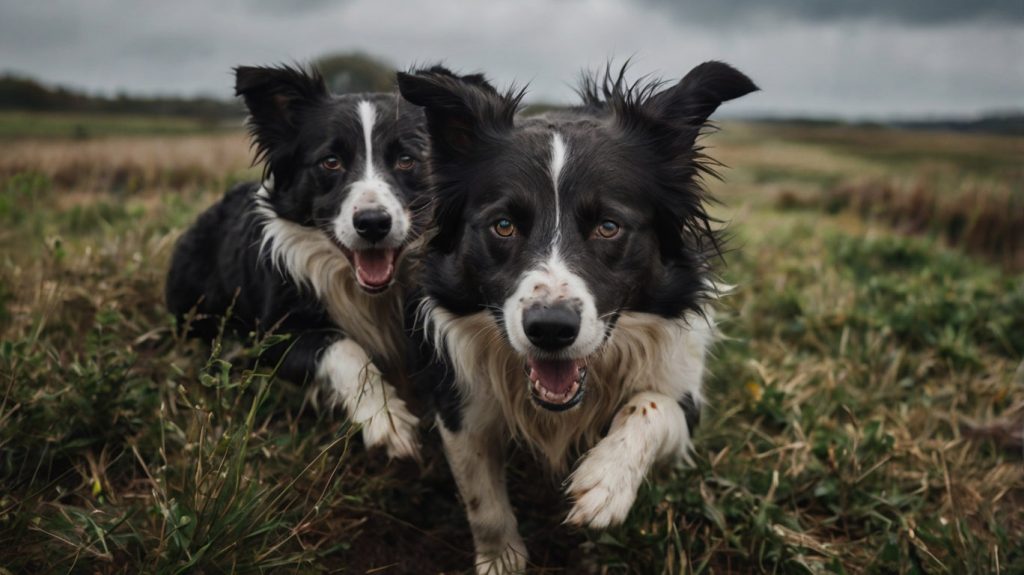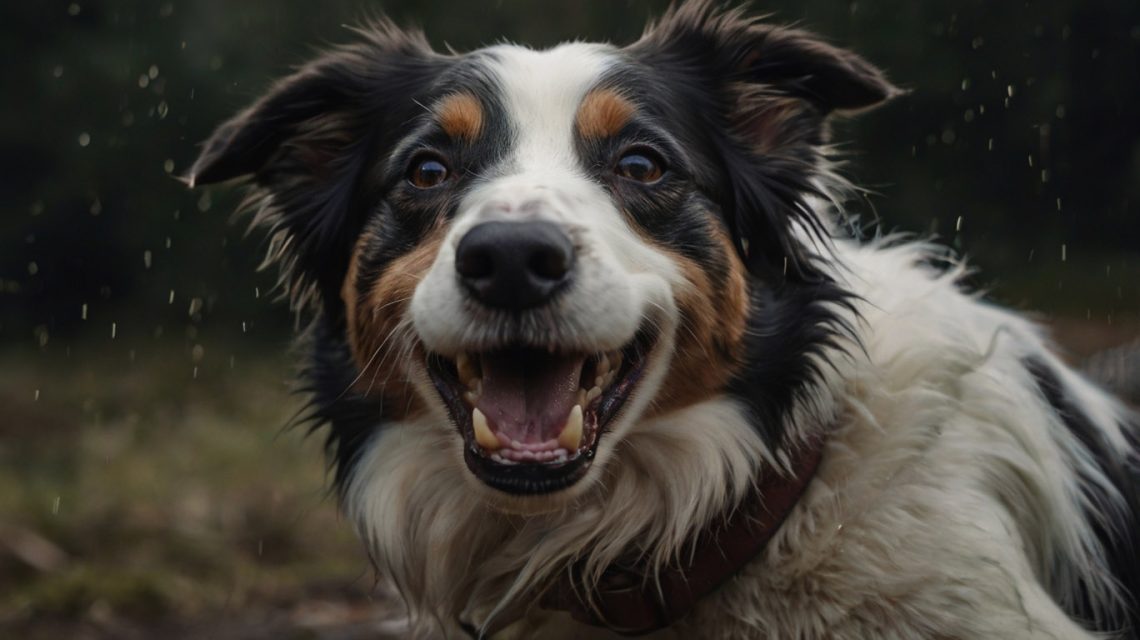Border Collies are renowned for their intelligence, energy, and loyalty. However, like any breed, some individuals may exhibit aggressive behaviors under certain conditions. While aggression in Border Collies is uncommon, it can stem from various factors, including poor socialization, fear, or unmet needs.
This guide explores the causes of aggression in Border Collies, practical strategies for management, and ways to nurture a positive relationship with your dog.
What Causes Aggression in Border Collies?
1. Lack of Socialization
Border Collies that have not been exposed to different environments, people, and other animals during their formative weeks may react fearfully or defensively in unfamiliar situations.
2. Excessive Energy and Frustration
These dogs are highly energetic and need regular physical and mental stimulation. Without proper outlets for their energy, frustration can build, leading to undesirable behaviors.
3. Herding Instincts
Their natural herding instincts can sometimes be mistaken for aggression. Chasing, nipping, or controlling movements are typical Border Collie behaviors but may appear aggressive without proper training.
4. Fear and Anxiety
Aggression is often a response to fear or perceived threats. For example, a Border Collie that feels cornered or overwhelmed may react aggressively to defend itself.
5. Medical Issues
Pain or underlying health conditions can contribute to sudden changes in behavior. Dogs experiencing discomfort may lash out as a protective measure.
How to Identify Aggressive Behavior in Border Collies
1. Body Language
Watch for signs of discomfort or stress, such as:
- Growling or baring teeth.
- Stiff body posture.
- Raised hackles.
- Ears pinned back or tail tucked.
2. Trigger Points
Identify patterns or situations that lead to aggression, such as:
- Resource guarding (e.g., food, toys, or space).
- Overstimulation during play.
- Encounters with unfamiliar dogs or people.

Preventing Aggression in Border Collies
1. Early Socialization
Introduce your Border Collie to diverse experiences, including different people, environments, and other animals, from a young age. This helps them build confidence and reduces fear-based aggression.
2. Regular Exercise and Stimulation
Border Collies thrive on activity. Incorporate daily walks, runs, or play sessions alongside mentally stimulating activities such as puzzle toys, training, or agility courses.
3. Positive Reinforcement Training
Use reward-based methods to encourage desired behaviors. Treats, praise, and consistency can reinforce positive responses while addressing problematic behaviors.
4. Avoiding Negative Triggers
If certain situations provoke aggression, work to minimize these triggers while gradually desensitizing your dog under controlled conditions.
Managing Aggression in Border Collies
1. Seek Professional Guidance
If your Border Collie displays consistent aggression, consult a professional dog trainer or behaviorist. They can provide tailored strategies to address the issue.
2. Rule Out Medical Causes
Visit a veterinarian to ensure your dog’s aggression isn’t due to pain or an underlying health condition.
3. Use Training Tools Wisely
Tools such as muzzles can provide safety during training, but they should be used as temporary measures while addressing the root cause of aggression.
4. Practice Patience
Behavioral changes take time. Be consistent and patient as you work with your dog, reinforcing positive behaviors and calmly managing setbacks.
Case Studies: Success Stories
Case 1: From Reactive to Relaxed
A three-year-old Border Collie named Max displayed aggressive tendencies toward strangers. After professional training focused on positive reinforcement and desensitization, Max became calmer and more confident in social settings.
Case 2: Managing Herding Instincts
Luna, a young Border Collie, nipped at children during play due to her herding instincts. With consistent training and supervised interactions, Luna learned appropriate play behavior, becoming a beloved family companion.
FAQs About Aggressive Border Collies
1. Are Border Collies naturally aggressive?
No, aggression is not a typical trait of Border Collies. However, unmet needs or specific triggers can lead to aggressive behaviors.
2. Can training stop aggression completely?
Training can significantly reduce aggression by addressing its root cause. While some behaviors may require ongoing management, most dogs show significant improvement with consistent effort.
3. How do I handle a growling Border Collie?
Avoid punishment, as it may escalate aggression. Instead, identify the cause of the behavior and remove the trigger while calmly redirecting their focus.
4. Should I adopt a Border Collie with a history of aggression?
Adopting an aggressive Border Collie is possible, but it requires experience, patience, and often professional support.
5. Can neutering or spaying reduce aggression?
In some cases, neutering or spaying can reduce hormone-driven aggression. However, it may not address aggression rooted in fear, anxiety, or learned behaviors.
6. What should I do if my Border Collie bites someone?
Stay calm, ensure the person receives medical attention, and consult a professional behaviorist immediately to address the underlying issue.


